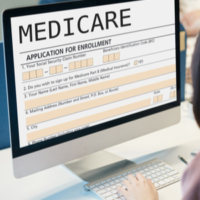FAQ: Medicare In Personal Injury Cases

When someone has been in an accident, their focus is on recovery, and on life adaptations that may be necessary. If you are on Medicare, you can rest a bit easier knowing that it will cover at least a portion of your medical expenses – however, that coverage is not without strings. Eventually, Medicare will seek repayment, and most often, it will do it through what is known as a Medicare lien, or ‘super’ lien. It is crucial that you are aware of just how this process happens, or you may be unpleasantly surprised by the paperwork when the program seeks repayment.
No Windfalls Allowed
If you meet with an accident, Medicare will generally cover your medical expenses, or at least those expenses it deems medically necessary. If you do not file suit against a person or entity that is allegedly responsible for your injuries, it will not seek repayment, at least not immediately. However, if an injured plaintiff files suit against the person who caused their injuries, Medicare will submit what is called a conditional payment letter, informing you that if you prevail in court, Medicare will be entitled to repayment, by law, out of any proceeds from the jury award.
The rationale for this is that an injured plaintiff should not profit from their injuries; if their medical bills are paid by Medicare, and then in addition, they were to receive a jury award, they would essentially receive a windfall. Public policy prohibits this kind of windfall – injured plaintiffs should be compensated, but receiving money out of step with the injuries they suffered is seen as unjust. That said, it is possible to negotiate with Medicare as to how much it will take, especially if you are in a low income bracket and have a good attorney.
Keep Medicare In The Loop
Medicare is usually classified in accident cases as a secondary payor, meaning that an injured plaintiff must first seek payment of their medical bills from their insurance company (and in the case of an auto accident, all drivers in Florida are required to have a certain level of insurance coverage, though some do not). Medicare acts as a supplement of sorts, rather than another form of insurance, and it has the right to seek a lien from any ‘primary’ payor, such as liability insurance or uninsured motorist coverage.
Even if Medicare only covers a small amount of your expenses after an accident, they must be repaid as promptly as possible. Failure to do so can open you – and your attorney – up to being sued by the U.S. government, for up to double damages if it is found you ‘knowingly’ ignored a Medicare obligation, and at this point, it will also no longer be possible to negotiate your lien amount with the program. It is in your best interests to deal quickly and promptly with Medicare, and leave your mind free to focus on recovery.
Contact A Tampa Personal Injury Attorney
Being injured in an accident, especially due to another person’s recklessness or negligent behavior, can range from inconvenient to life-changing. Having to deal with Medicare can be confusing and even frightening at a time when your focus should be recovery. The Tampa personal injury attorneys from the Rinaldo Law Group can offer compassionate and knowledgeable representation to guide you through the legal process – and the process of getting your bills paid. Contact us today for a free consultation.
Resource:
law.cornell.edu/cfr/text/42/411.24
https://www.tampainjuryaccidentlaw.com/suing-a-drunk-driver-in-florida/












